Despite backing of prime minister and outgoing mayor, Ze’ev Elkin likely to suffer major defeat in bid to lead capital; second round scheduled for November 13
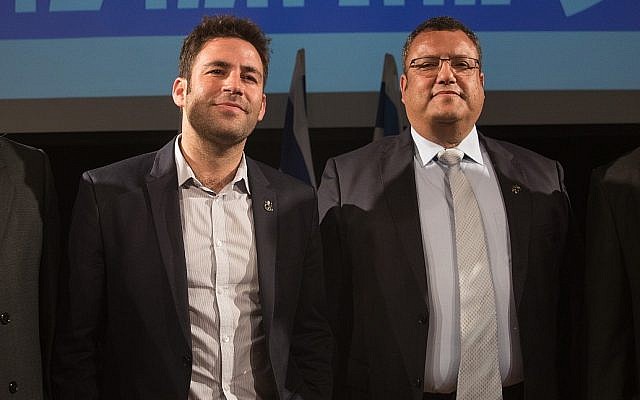
Businessman Moshe Lion and upstart activist Ofer Berkovitch appeared headed for a runoff vote to become the next mayor of Jerusalem early Wednesday, as both candidates garnered about 30 percent of the vote.
The apparent result, with many Jerusalem votes yet to be counted, looked to hand a stunning defeat to Jerusalem Affairs minister Ze’ev Elkin, long regarded as the likeliest front-runner in the hard-fought race.
Despite being backed by Prime Minister Benjamin Netanyahu and current mayor Nir Barkat, Elkin appeared headed for a third or fourth place finish along with ultra-Orthodox candidate Yossi Deitch.
With some 35% of votes counted, Lion, who failed in a 2013 bid to lead the city against Barkat, held a slight lead with 31% of votes over Berkovitch, who had 29 percent.
A jubilant looking Lion was mobbed by supporters as he arrived at a campaign party at 1:30 a.m. in Jerusalem.
“The results are fantastic,” said Lion, who declared “Jerusalem is my life’s work.” However, he also cautioned that the results were not yet final.
Elkin, who many had thought wanted to parlay the job into a bid for prime minister, managed only 21 percent of the vote and Deitch 19 percent.
A single candidate must win 40% of the vote on Tuesday to be declared mayor. Should none of the candidates reach the mark, and none is expected to, a second round of voting will be held on November 13 between the two candidates with the most votes.
Lion had enjoyed the backing of both Defense Minister Avigdor Liberman and ultra-Orthodox faction Shas and part of United Torah Judaism, leading to charges of backroom dealing on the national level to secure him the position.
Berkovitch, meanwhile, led the vanguard of the secularist flank of the city with his Hitorerut party, and despite years on Jerusalem’s city council had campaigned as an outsider unsullied by political horse-trading.
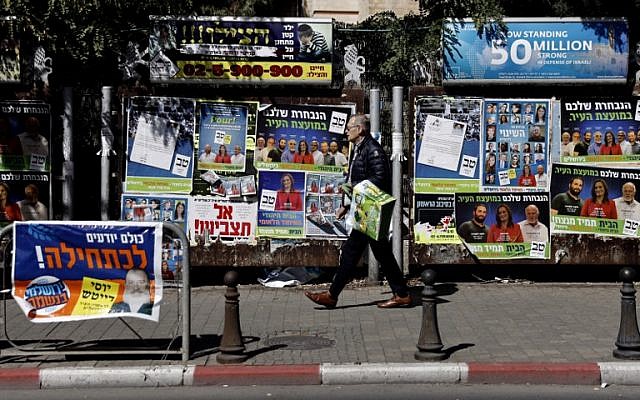
Going into election day, analysts had viewed the race to lead the capital as wide open, with no clear front-runner emerging. As voting drew to a close though, Elkin’s campaign appeared to enter panic mode, with Netanyahu recording a robocall urging Elkin supporters to vote.
“Go and vote. The battle is tight. I say this as a Jerusalemite. You need a person like Minister Ze’ev Elkin, a very talented man who has done a lot for Jerusalem and will do more,” the recording said.
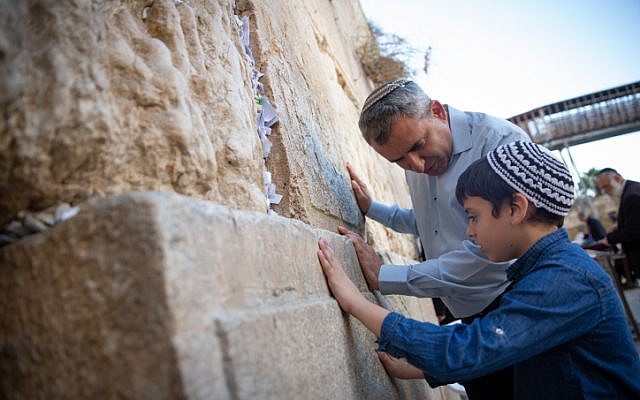
Despite voters getting the day off in a bid to raise turnout numbers, only some 34% of Jerusalemites made it to voting booths Tuesday. If discounting East Jerusalem, where most Palestinian residents boycott the election on ideological grounds, the number rose to 51%, below the national average of 56% and on par with turnout in years past.
As voting began, Lion drew attention and some mockery on social media for the abnormally large font on his ticket as compared to his rivals (apparently submitted by his campaign, and not restricted under election rules).
Throughout the day, his campaign proudly shared photos of prominent rabbis, including Sephardic Chief Rabbi Yitzhak Yosef, voting for Lion and Shas (Yosef later asked that the photo not be distributed.)
As elementary schools assumed the guise of polling stations — where candidates’ proclamations and vows often clashed with the childish backdrops of the booths — Hitorerut mayoral candidate Ofer Berkovitch was photographed under a banner exhorting students: “One must win with honesty, and lose with honor.”
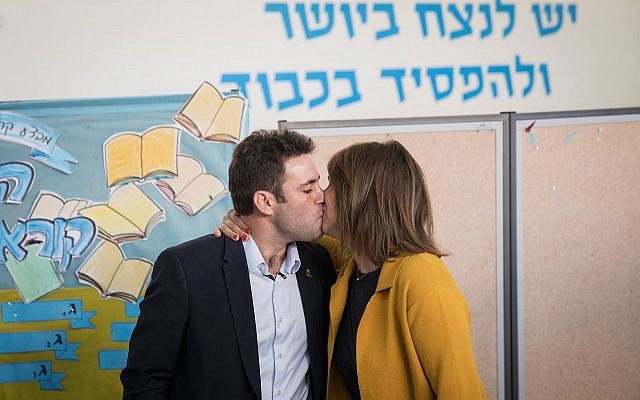
And at two polling stations in the Rehavia neighborhood, voters appeared divided as ever, frequently along religious and communal lines, on who was best suited for the job.
Outside one station, a handful of secular Hebrew University of Jerusalem students touted Berkovitch as the sole candidate they could reasonably support in the race.
“All the rest are religious, Haredi or ‘Bibist,’” remarked one 24-year-old student, who asked to be identified only as Michael, and referring to die-hard supporters of Prime Minister Netanyahu.
Walking out of the polling station, Dorit Peleg, a Modern Orthodox resident of the city for 25 years, said she had voted for Elkin because he is “right-wing, religious” and because of his platform on keeping the city clean.
Laurence Nachmani, a religious woman who moved to Israel from France 25 years ago, said she didn’t support Lion in his 2013 race against Barkat, but will now because “now Berkovitch has arrived and I don’t want there to be a civil war” over religious issues in the city.
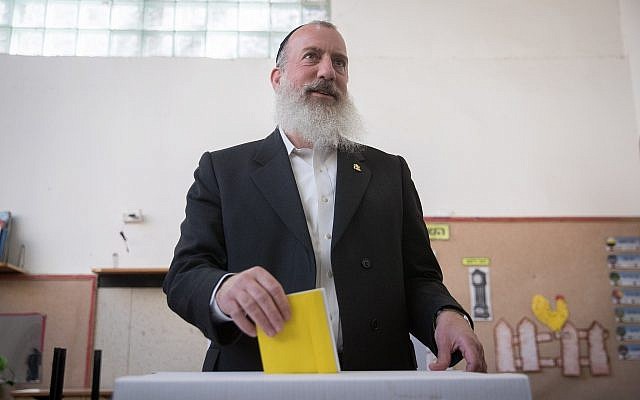
But Avraham Gamrasani, a middle-aged Jerusalem resident who described himself as traditional, said he formerly supported Lion — up until his alliance with Shas and its leader Aryeh Deri. Elkin has “good intentions,” he opined, but that wasn’t enough.
He was on his way to vote for Deitch, whom he described as “a man of good deeds.”
One of the questions hovering above the Jerusalem election is whether Haredi voters (over one-third of the Jewish vote) would support the ultra-Orthodox-designated candidate Lion, or the candidate who was ultra-Orthodox, namely Deitch.
Mazal Bitan, a Haredi lifetime Shas supporter, signaled the former.
“Whatever our rabbis tell us to do, we do,” she said solemnly, after walking out of the building where she voted for Lion.
As reported by The Times of Israel
